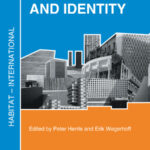Beschreibung
This book brings together complex fields of knowledge and globally splintered
discourses on a subject that is experienced not only by scholars, but in the
everyday lives of people around the world. There is a common complaint about
the loss of identity which, to a substantial degree, is being associated with the
built environment in cities and specifically with their architecture.
‘`Architecture and Identity” takes a global, multidisciplinary look on how
identities in contemporary architecture are constructed. The general
hypothesis underlying this book is that in a globalized world identity in
architecture cannot be easily derived from distinct indigenous patterns. The
book presents forty contributions from various disciplines aiming to destroy
the myth of an inheritable or otherwise prefabricated identity. Some authors
dismantle constructs of identity that have long been considered as ‘`solid” and
unbreakable while others meticulously unravel the ‘`construction” process of
identities in a given society or region.
Identity is no longer an issue predestined by one’s place or one’s ancestry, nor
is it something that is necessarily associated with the concept of ‘`ownness”.
Identity has the possibility as much as the need to be constructed by
individuals, groups and societies. Looking at the latter disenthralls us from the
negative stance that is often taken up by those complaining about globalization
and modernization as purely negative trends.
Peter Herrle is professor for architecture and international urbanism at Berlin
University of Technology (TU Berlin) and head of the Habitat Unit.
Erik Wegerhoff was research assistant at the Habitat Unit and is currently
pursuing his PhD in architecture.
http://www.habitat-unit.de


